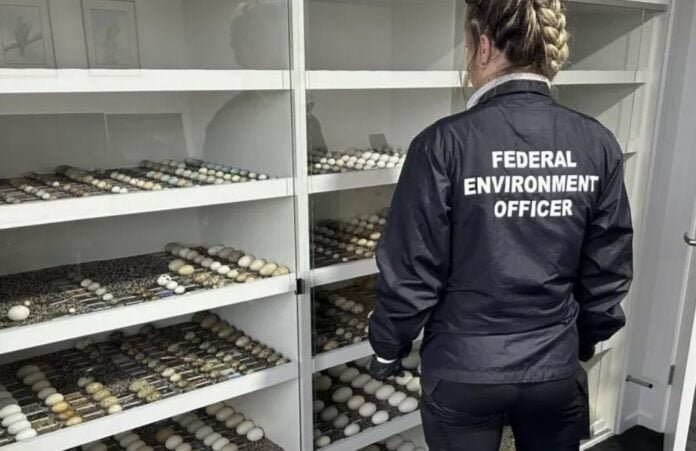Unveiling the Illegal Bird Egg Trade
In a significant operation, Australian authorities seized a collection of 3,404 bird eggs, valued between A$400,000 and A$500,000 (£207,000 – £259,000), in Granton, Tasmania. This discovery, part of a broader European investigation into the illegal bird trade, underscores the escalating threat posed by environmental and wildlife crimes.
The Scale of the Operation
The eggs, found hollowed out or “blown,” suggest they were intended for ornamental purposes. The investigation has identified a 62-year-old man linked to the illicit collection and trade of both native Australian and CITES-listed bird eggs. Although no arrests have been made, the suspect is expected to face charges under the Environment Protection and Biodiversity Act 1999.
The Impact on Endangered Species
The illegal wildlife trade, including the harvesting and trading of bird eggs, has dire consequences for biodiversity. This seizure in Tasmania is believed to include eggs from species facing severe extinction risks, such as the forty-spotted pardalote, swift parrot, and shy albatross. These activities not only threaten individual species but also disrupt entire ecosystems.
The Global Dimension of Wildlife Crime
This operation is part of a larger European effort launched in 2023 to combat illegal bird egg trade. The investigation has already led to the seizure of over 56,000 eggs, highlighting the global scale of the issue. CITES, an international agreement aimed at protecting endangered species, estimates the wildlife trade is worth billions of dollars annually, covering more than 40,000 species.
Legal and Ethical Implications
Tasmanian ecologist Dr Sally Bryant emphasised the outdated and corrupt nature of egg collecting. She noted that such extensive collections are typically amassed by skilled operators over many years. The legal penalties for interfering with threatened species in Australia are severe, including up to ten years’ imprisonment and substantial fines.
The Urgent Need for Action
Tanya Plibersek, Australia’s Minister for the Environment and Water, stressed the urgency of addressing wildlife crime. She highlighted that illegal trafficking poses a significant threat to species already at risk of extinction. Stronger enforcement and international cooperation are essential to combat this illicit trade and protect global biodiversity.
The recent seizure of rare bird eggs in Tasmania sheds light on the pervasive and damaging nature of wildlife crimes. As the world grapples with the threat of biodiversity loss, it is crucial to intensify efforts to dismantle illegal wildlife trade networks. Protecting endangered species and preserving our natural heritage depends on vigilant enforcement and global cooperation.
Further Reading




